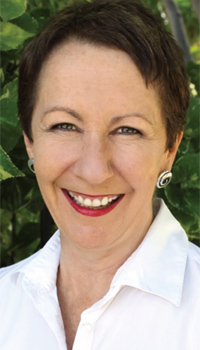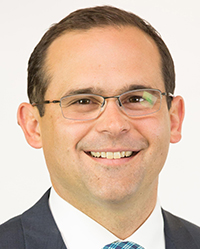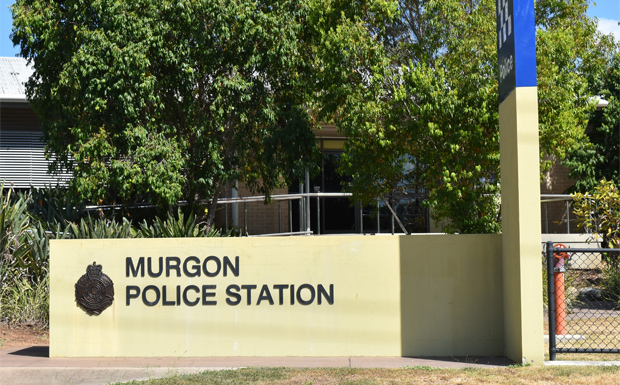
July 18, 2018
Early intervention to stop young people going off the rails is the key to cutting youth crime, according to a new report on Queensland’s Youth Justice system.
The report, prepared by retired former Queensland Police Commissioner Bob Atkinson and released last Friday, was welcomed by Amnesty International but received a scathing review from the LNP Opposition (see below).
Child Safety Minister Di Farmer said the report found the issues facing troubled young people were complex but early intervention could make the difference.
“Bob Atkinson’s report shows that we are a much better chance of changing a young person’s behaviour when they are 12 than when they are 27,” Ms Farmer said.
“We need to be tough on the causes of crime, and we need to do it as early in a child’s life as possible, to have a serious impact on youth crime.
“To do that we need to further integrate our police, child safety, health and education responses with other key services to solve problems before they become youth justice issues.”
Mr Atkinson’s report will contribute to a new Youth Justice Strategy that will be developed by the end of this year in consultation with stakeholders, community leaders and high-risk young people and their families.
Mr Atkinson will be joined by Townsville community champion Major-General Stuart Smith and other eminent Queenslanders on a taskforce to examine the report’s recommendations and contribute to the strategy.
“We cannot keep doing the same things we have been doing and suddenly expect the results to be different,” Ms Farmer said.
“We have had promising results already from our early intervention programs, and the recommendations in Bob’s report will help us to get the right balance between reducing crime, holding offenders to account and building a better future for young people.”
Mr Atkinson made 77 recommendations to overhaul the way Queensland deals with young offenders and engages with disadvantaged young people.
Recommendations in the report included:
- Continued investment in early intervention to prevent youth offending;
- Intervention and support for parents as early as the pre-natal stage;
- Greater collaboration between the Department of Child Safety, Youth and Women, the Queensland Police Service and the Children’s Court;
- More alternative and flexible schooling options for young people at risk of disengaging from education;
- Keeping minor offences out of the court system;
- Reducing the number of young people in youth detention; and
- Options to divert young people away from the Youth Justice system.
Mr Atkinson said there were no quick-fix solutions.
“The issues underpinning youth offending and the ability of the system to respond are many and complex,” he said.
“The report outlines many causes of offending, including family dysfunction, domestic violence, neglect, poor school attendance, mental health issues and the impact of alcohol and substance abuse.
“My hope is that this report will help to reduce crime and at the same time help troubled young people to overcome these issues and live healthy and productive lives.”
* * *

David Janetzki
The LNP labelled the release of the report as “Black Friday for our youth justice system”.
Shadow Attorney-General David Janetzki said the State Government had “given up on fixing the system”.
“Our youth justice system has gone from one crisis to another under Annastacia Palaszczuk and Labor,” Mr Janetzki said.
“We’ve seen report after report, review after review, recommendation after recommendation – but the problems are only getting worse.
“Today’s Youth Justice Report seems to be more about making excuses to go soft on crime to ease the overcrowding issues, rather than fixing our broken youth justice system.
“We’ve seen recommendations about raising the minimum age of criminal responsibility in Queensland from 10 to 12, GPS tracking of young offenders so they don’t need to be in detention and suggestions that some minor offences might not be prosecuted.
“These aren’t the answers to solving Labor’s youth justice crisis.
“Youth offenders being accountable for their actions and early intervention and rehabilitation must be the way forward.
“We need to make sure young offenders are rehabilitated and skilled up properly so they have a fair crack at turning their lives around.
“Queensland can’t afford at risk youth veering towards a life of crime as hardened adult criminals.
Mr Janetzki said the report also revealed “the true extent of Labor’s bungling of the transfer of 17-year-olds to youth detention”.
“We’ve heard that there are still 34 (17-year olds) in adult jails, despite Labor promising to transition them by November last year,” Mr Janetzki said.
“Labor completely bungled the transfer of these offenders from adult jails to youth detention centres, as we predicted when the Bill was debated in November 2016.
“Youth crime is rampant in Townsville, the Gold Coast and other parts of Queensland.
“Our youth detention centres are overcrowded and Labor’s solution of bail houses across the suburbs of Queensland has already cost $5 million, won’t help rehabilitate youth offenders and will put community safety at risk.
“In 2016, Labor scrapped strong laws that the LNP put in place to hold young offenders accountable for their crimes.
“Is it any wonder that we have youth gangs wandering the streets at night, causing mayhem and mischief and continually snubbing their noses at the law, the police and the courts.
“We have a revolving door system that isn’t holding repeat offenders accountable.
“In 2016-17, 10 per cent of youth offenders were responsible for 43 per cent of offences in Queensland.”
* * *
* * *
Amnesty International welcomed the recommendations in the Atkinson Review which focussed on prevention and diversion programs.
However, Amnesty called on the State Government to recognise and address the over-representation of Indigenous children in the system and raise the age of criminal responsibility to 14.
“Former Commissioner Atkinson has hit the nail on the head – we must keep kids out of prisons,” Amnesty International Indigenous Rights Campaigner Belinda Lowe said.
“Queensland’s youth prisons are overflowing, more than 80 per cent of kids locked up haven’t even been sentenced yet and Indigenous kids are 30 times more likely to be locked up than their non-Indigenous peers – it’s outrageous.
“It’s great to see Bob Atkinson call on the Queensland Government to catch up with the rest of the world and raise the minimum age that kids can be put behind bars.
“However, Australian medical, legal and human rights experts are calling for the age to be raised to at least 14 in line with the international median age and recommendations from the UN Committee on the Rights of the Child.
“Small children under the age of 14 belong in the community, not in prison. The age must be raised to 14 as soon as possible.
“Amnesty International strongly welcomes the key recommendation for the Queensland Government as a whole to adopt four pillars: Intervene early, keep children out of court, keep children out of custody, and reduce reoffending.
“However given the over-representation of Indigenous kids there isn’t enough focus on Indigenous solutions and the leadership of Indigenous people and organisations in the reform.
“The government needs to support the Indigenous leaders in the community with these ideas, and ensure they get the funding they need to make a difference in the lives of these kids.”
- The full report is available at www.csyw.qld.gov.au/youth-justice























